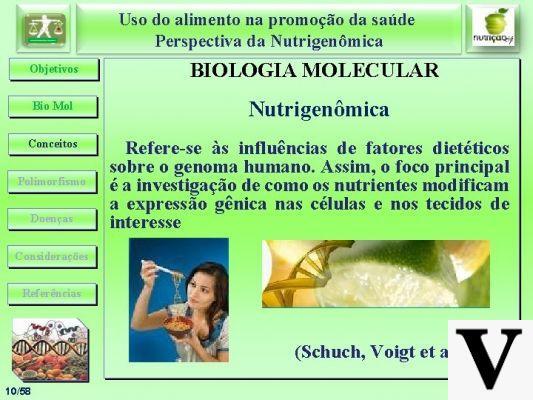
Do you get fat just looking at a pizza? Struggle to lose weight and envy those who, despite eating twice as much as you, maintain a toned and dry physique? Don't blame the scales, but your ancestors who most likely bequeathed you a defective gene. "Is called PAI1 (Plasminogen Activator Inhibitor-1) and is the most important gene involved in the genesis of obesity, a real disease that has a strong genetic imprint ", Dr. Giovanni Lucio Rocca, internist, director of the Poliambulatorio Manara 31 in Monza. «Since the entire sequencing of the human genome was completed in 2001, polymorphisms have in fact been isolated, ie mutations found in particular genetic sites responsible for poor metabolism and, therefore, for extra pounds. Thanks to nutrigenomics, the newly born university discipline that combines genetics and the science of nutrition, it is possible to highlight these polymorphisms which, given in hand, are found in as many as 80 percent of obese people ».
Finding out if your PAI1 is altered is simple: just analyze a swab soaked in your saliva. The DNA is then extracted from the salivary sample according to an automatic, human-error-proof procedure. Within two days, the result is obtained, for a cost of 176 euros (106 for the swab and 70 for the extraction).
YOUR TAILOR-MADE DIET
But what good is it to know if the "flab" that surrounds us is more attributable to the genetic makeup than to snacks? "Predictive genetic tests, such as PAI1, are fundamental for guiding the entire therapeutic plan", continues Dr. Rocca. “And it's not just about getting back on the line to make peace with the mirror. As a recent study conducted by the University of Miami Department of Internal Medicine shows, obese people are 4 times more likely to suffer from diabetes, cancer, hypertension and cardiovascular accidents such as stroke and heart attack. Therefore, it becomes essential to prescribe to these people a low-calorie (calibrated on 1500 calories per day) and high-protein diet, with the absolute prohibition of taking simple carbohydrates and sugars after 16 in the afternoon. A little help to awaken the sluggish metabolism? The dry extract of fucus (sea oak) which, thanks to the high amount of iodine, is an excellent metabolic activator to be taken at a dose of 1-2 grams per day, divided into two ».
HEAD ALSO THE THYROID
Those who discover that they do not have genes on their side will also have to monitor, with close blood checks, all parameters relating to diabetes and cardiovascular risk. Including the thyroid gland because mutations in the "obesity gene" are also often associated with masked hypothyroidism. “At the beginning it has no symptoms and it doesn't even show up in blood tests. But it is useful to add, in these cases, the examination of another gene called IL1 (interleukin 1), which is altered in most hypothyroid women », continues the expert. "The additional cost is only 70 euros because the test is performed on the same salivary sample which, by law, must be kept for three years".


























